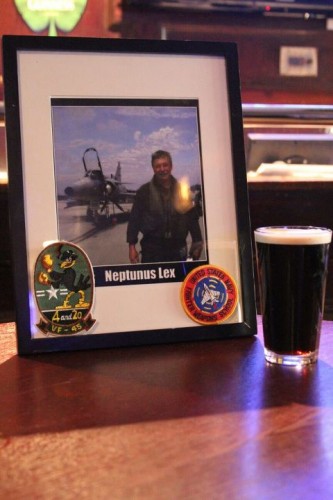Services for Captain Carroll LeFon…Neptunus Lex…were held Tuesday March 26 at Fort Rosencrans…I wasn’t there, but a large number of Lex’s blogfriends were present in addition to his family, colleagues, and real-life friends. The flyover was, appropriately, by a U.S. Navy F-18 and an ATAC Kfir.
There are now more than 1600 comments on this memorial thread, and another 200+ here…many of them quite eloquent, such as this one:
I will be there, in spirit… Not as an eagle, but as a badger
Many people have written tributes to Lex on their own blogs. Fuzzybear Lioness reposted a piece she wrote in 2008, on the occasion of Lex’s retirement from the Navy, in which she describes getting to know the Captain via blog and email and later meeting him in person. Well worth reading. Also, someone found a “Friday Musings” post from a few years back featuring Lex himself, on video.
My own selection of favorite Lex posts can be found here.
A new blog, The Lexicans, has been formed in order to continue the great community that grew up at Neptunus Lex. Hopefully all Lexicans and recent Lex-discoverers will check it out. And I understand that the U.S. Naval Institute plans to publish in book form “Rhythms,” Lex’s book-in-progress about life on an aircraft carrier, and possibly the blog itself as well.
It was a pleasure reading you and learning from you, Lex, and it was an honor to be listed as a “Wingman” on your blogroll.



